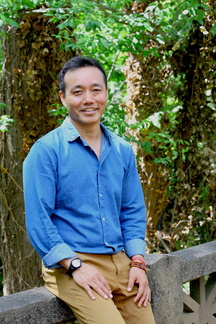Tenzin Namdul, PhD, TMD

Ph.D., Cultural Anthropology, Emory University, Atlanta, GA
T.M.D (Doctor of Tibetan Medicine), Men-Tsee-Khang Tibetan Medical and Astro. College, Dharamsala, India
M.A., Anthropology, Emory University, Atlanta, GA
BA, Anthropology, University of Minnesota
Graduate Certificate, Public Health Core Concepts, University of Minnesota, MN
Summary
Dr. Tenzin Namdul is a Tibetan Medical Practitioner (doctor) and a medical anthropologist interested in the intersection of Tibetan medicine and Buddhist psycho-philosophy in the care for terminal patients. His doctoral research, funded by the Wenner-Gren Foundation and Fulbright-Hays Fellowship, examines how perspectives of Tibetan medical doctors, Buddhist practitioners, and lay people about death and dying translate into their care for dying individuals and their own dying process. Specifically, he explores the Tibetan Buddhist contemplative practice called thugs dam (pronounced tukdam)—a meditation an adept practitioner indulges in after a clinical death—through ethnographic study and shows how it informs and shapes both the sociomoral fabric of life and the sense of wellbeing at the time of dying in Tibetan refugee communities in India.
Dr. Namdul’s future research focuses on conducting a cross-cultural comparative study with terminal patients using the “Constitutional Self-Assessment Tool" (CSAT). He and Dr. Miriam Cameron created the CSAT, which is based on Tibetan medicine. Their research team tested, refined, and published the CSAT. Now the CSAT is used in the U.S., India, and Tibet to teach Tibetan medicine.
Awards & Recognition
Mind & Life Summer Research Institute Fellow, Garrison Institute, NY (2019)
Fulbright-Hays Doctoral Dissertation Research Abroad Fellow (2017)
Wenner-Gren Ph.D. Dissertation Fieldwork Grant (2016)
Dalai Lama Trust Graduate Scholar (2013-15)
Emory Graduate Diversity Fellow, Laney Graduate School, Emory University (2013-18)
Selmer Birkelo Scholarship, College of Liberal Arts, University of Minnesota (2010)
Gold Medal (in recognition of contribution and dedication to the field of Tibetan Medicine), All India Association of Alternative Medicine, Kolkata, India (2001)
Research
Research Summary/Interests
Death and Dying, End-of-life Care, Mental Health, Tibetan Medicine, Buddhist Studies, Ritual, Integrative Health, Consciousness.
Publications
Books
- Cameron, M.E., & Namdul, T. (2020). Tibetan Medicine and You: A Path to Wellbeing, Better Health, and Joy. New York: Rowman & Littlefield. (The book explains how to use Tibetan medicine for self-care and integrative care.)
- Namdul, T. (Trans. & Ed.) (Gyal, Y.). (2006). Tibetan Medical Dietary Book: Potency and Preparation of Vegetables: Vol. 1. Dharamsala, India: Men-Tsee-Khang Publications. (This book complements conventional medicine.)
Articles in Peer-Revived Journals
- Cameron, M.E, Torkelson, C., Haddow, S., Namdul, T., Prasek, A., & Gross, C.R. (2012). Tibetan Medicine and Integrative Health: Validity Testing and Refinement of the Constitutional Self-Assessment Tool and Lifestyle Guidelines Tool. EXPLORE: The Journal of Science and Healing (8)3, 158-171. (The “Constitutional Self-Assessment Tool” and “Lifestyle Guidelines Tool” are published in this article.)
- Sallon, S., Namdul, T., Dolma, D., Dorjee, P., Dolma, S., Sandhutsang, P. T., Ever-Hadani, T., Bdolah-Abram, S., Apter, S., Almog, S., & Roberts, S. (2006). Mercury in Traditional Tibetan Medicine - Panacea or Problem? Human & Experimental Toxicology, 25, 405-412.
- Namdul, T., Sood, A., Ramakrishnan, L., Pandey, M. R., Moorthy, D. (2001). Efficacy of Tibetan Medicine as an Adjunct in the Treatment of Type 2 Diabetes. Diabetes Care, 24, 176-177.
- Namdul, T. (2001). Diet & Lifestyle in Harmony with the Season. sMan-rtsis Journal, II (2), 72-78.